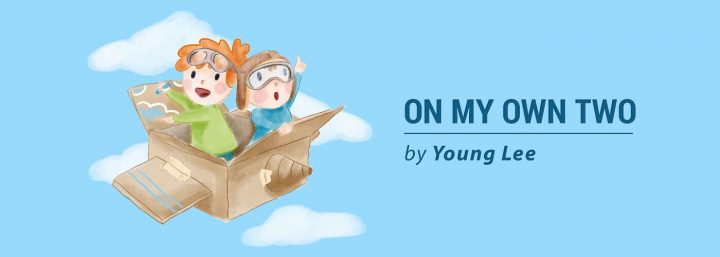Chopsticks Remind Me of CMT and Disability
Written by |

Column by Young Lee
I felt like a child again — and not in a good way. It was a shock and I felt pathetic. But while holding the cheap pair of disposable chopsticks in my trembling hand, unable to pick up my food, I came to a few realizations about my assumptions regarding ability, culture, identity, and Charcot-Marie-Tooth disease (CMT).
For the past few months, many of my Thursday mornings have started in similar ways. After a bite for breakfast and checking a few things off the to-do list, I put on my gym clothes and head to my Chinese church to knock a birdie around with a few Chinese aunties and uncles. I hesitate to call what we do on those mornings “badminton” because we’ve relaxed the rules so much that it barely resembles the sport.
But it’s a nice way to let off steam and clear my mind. And I like seeing the heart-rate tracker on my smartwatch move into the orange zone — a sign that I’m getting some actual exercise. However, a few weeks ago, when I stopped at a poke place after a particularly intense session of badminton, I struggled with picking up my food using chopsticks.
And I couldn’t help but laugh at myself.
When I was in grade school, a friend asked whether I ever felt as if my ancestors were disappointed in me for losing touch with my Asian identity — as if being Asian wasn’t a matter of ancestry, but a grade of authenticity I had to earn. I think I internalized that idea for many years.
Being Asian American is an identity to which I have always felt aligned, but I also felt it was under constant scrutiny. I can barely string together an understandable sentence in Mandarin. I didn’t grow up with family trips to Asia, eating dim sum, or drinking bubble tea. And much to my disappointment, I haven’t picked up any level of pen spinning — a seemingly ubiquitous skill that many of my Chinese American peers acquired during early morning Chinese school.
I could at least cling to my ability to use chopsticks. I thought it affirmed in some small way that I was still Asian American.
So ingrained was my insecurity and pride that I was secretly, and sometimes not so secretly, disappointed that many of my family members often disparaged chopsticks in favor of forks and knives — even at Chinese restaurants.
And yet there I was, someone who had taken such pride in my chopstick ability, unable to lift even a small clump of rice to my lips.
The idea of losing my ability to use chopsticks scared me. As someone with CMT, I knew that my symptoms would worsen over time, but I didn’t think this particular loss was something I’d experience so soon.
Luckily, my inability to effectively use chopsticks seems to have been a temporary thing. The weakness tends to happen right after Thursday badminton sessions. I don’t have the expertise to say that it is a symptom of CMT, although I’ve heard anecdotes from other CMTers who have similar experiences of abnormal weakness after physical exertion.
The experience made me rethink the way I feel about the ability to use chopsticks. I realized that I’ve been unfair to folks who don’t or can’t use chopsticks, Asian or otherwise. It also reminded me of the many things that I take for granted, including playing badminton, using chopsticks, and socially touted activities such as travel and foodie adventures that are inaccessible for many in the disabled community.
And while it may be true that not every activity needs to be accessible for everyone, when accessibility isn’t a priority for activities that society holds in high esteem, perhaps it’s a disturbing sign that society is fine with leaving members of the disabled community behind.
It’s something worth thinking about. And for that reason, I’m glad those chopsticks reminded me of these lessons.
***
Note: Charcot-Marie-Tooth News is strictly a news and information website about the disease. It does not provide medical advice, diagnosis, or treatment. This content is not intended to be a substitute for professional medical advice, diagnosis, or treatment. Always seek the advice of your physician or other qualified health provider with any questions you may have regarding a medical condition. Never disregard professional medical advice or delay in seeking it because of something you have read on this website. The opinions expressed in this column are not those of Charcot-Marie-Tooth News or its parent company, Bionews Services, and are intended to spark discussion about issues pertaining to Charcot-Marie-Tooth.





Leave a comment
Fill in the required fields to post. Your email address will not be published.